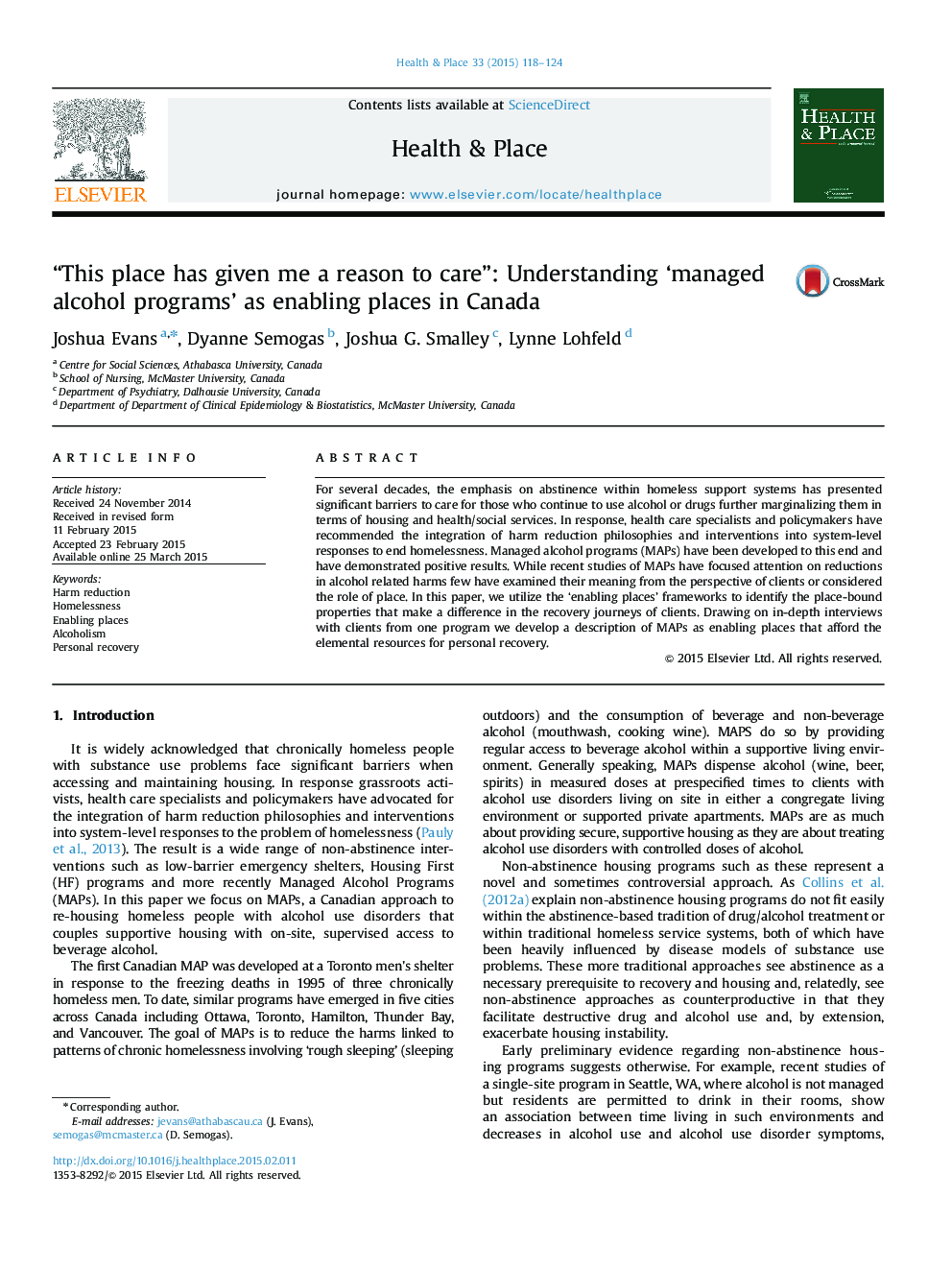| Article ID | Journal | Published Year | Pages | File Type |
|---|---|---|---|---|
| 7458174 | Health & Place | 2015 | 7 Pages |
Abstract
For several decades, the emphasis on abstinence within homeless support systems has presented significant barriers to care for those who continue to use alcohol or drugs further marginalizing them in terms of housing and health/social services. In response, health care specialists and policymakers have recommended the integration of harm reduction philosophies and interventions into system-level responses to end homelessness. Managed alcohol programs (MAPs) have been developed to this end and have demonstrated positive results. While recent studies of MAPs have focused attention on reductions in alcohol related harms few have examined their meaning from the perspective of clients or considered the role of place. In this paper, we utilize the 'enabling places' frameworks to identify the place-bound properties that make a difference in the recovery journeys of clients. Drawing on in-depth interviews with clients from one program we develop a description of MAPs as enabling places that afford the elemental resources for personal recovery.
Related Topics
Health Sciences
Medicine and Dentistry
Public Health and Health Policy
Authors
Joshua Evans, Dyanne Semogas, Joshua G. Smalley, Lynne Lohfeld,
